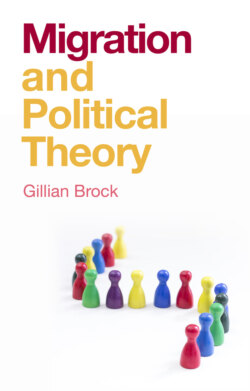Читать книгу Migration and Political Theory - Gillian Brock - Страница 12
1.2.3 Some central general economic impacts
ОглавлениеEconomists commonly cite the tremendous benefits of human migration today, such as migrants having increased the size of the world economy and contributed very positively to global GDP, higher incomes, and productivity. Remittances – the money sent back by migrants to family and friends in the country of origin – are another huge source of revenue. This flow of revenue can be of great value both to those who receive remittances and to the local economies of recipients.
International migration can also prove to be a potent catalyst for significant social, economic, demographic, and political changes in sending and receiving countries. Migrants can make significant sociocultural, political, and economic contributions both in the countries they join and those they leave, especially when they act as agents of change. One widely noted feature is that immigrants tend to engage in much higher levels of entrepreneurial activity compared to their native counterparts, perhaps because they have become used to taking greater risks. In some countries, such as the United States, migrants have made huge contributions to innovation (IOM 2020: 6).
While it should be acknowledged that there can be these significant general benefits, it is also important to appreciate that the effects of migration differ enormously among countries. Specific effects for particular countries can vary a great deal depending on who is migrating, where they are going, where they have been, and particular contextual factors such as government policies in home and host states. In various situations, migrants can affect labor markets, wages, prices of goods and services, economic growth, tax revenues, capital investments, health and educational outcomes, among many other factors. For instance, high levels of skilled migrants can lead to a brain drain from their country of origin but they can also raise the return on investment in education, thus leading to a higher education level among the remaining population. This phenomenon is called brain gain, though to what extent the phenomenon exists in certain countries and particular sectors also varies considerably. Skilled emigrant diaspora populations can also contribute positively through remittances and political and economic channels. In addition, returning migrants can bring with them capital and progressive ideas that can help reform the local economy and advance more democratic regimes through changes in political climate and public opinion. Whether or not these effects have measurable impacts and whether they outweigh several categories of disadvantages of migration, such as reduced health outcomes, declining wages, weakened institutions, or increased political instability, is another important issue. Such topics are discussed in more detail elsewhere in the book, such as in chapter 8.
